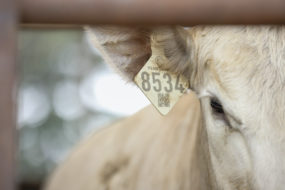There in the concrete and plastic world outside of EveryTown Elementary, you receive your real education. Think about all the life lessons that you mastered somewhere between the monkey bars and the merry-go-round.
Dodgeball made you keenly aware that being the center of attention is not always a good thing. Bullies taught you that smarts and courage often win the day, but you still may end up with a black eye. And forming a squad of like-minded friends often leads to capturing that elusive flag.
Among all the lessons, however, stands one fundamental truism: You make more friends by building people up instead of tearing them down.
Flash forward to adulthood, and I can’t figure out how the agriculture industry forgot these simple playground lessons.
As I survey the landscape of agriculture today, I see a sector plagued by deconstruction both from internal and external forces. Agriculture is more fractured now than any time in my life, and it doesn’t have to be.
Internally, agricultural producers spend tremendous amounts of time and energy arguing about which production style is superior. For some, it’s a marketing ploy used to garner attention and sell their product at a higher premium. For others, questioning their production style is akin to attacking a family heritage. Adopting new practices, embracing change runs counterintuitive to generations of experience, so they lash out.
For me, the question is simple: Are unyielding extremes worth the consequences to those we serve? As the world enters the most difficult era in recorded agricultural history with unprecedented challenges, why are we arguing about which method to use? That’s like arguing about your form while diving into an empty pool.
Compounding the internal strife are external factors; special interest groups, fringe environmentalists, the federal government and even celebrity chefs all have managed to interrupt the direct link between agriculture producers and consumers.
They have polluted the pipeline with toxic misinformation, twisting public perception to the point that agricultural producers are actually scorned by the people they feed.
Consumers are told that hormones are the devil’s elixir despite the fact that these hormones do not pass into consumer products. They are told farmers are somehow big businesses because they had to incorporate the family farm to protect it for liability purposes. At the end of the day, this is nothing more than politics played by paid professionals.
For the most part, farmers and ranchers are committed to a cause rather than political activism. They depend on their trade or commodity associations to stir their interests into the political pot as best as possible. Agendas are plentiful as interests are elevated, diminished, combined and artificially connected.
The end result for our sector is a thousand voices talking; the outcome for the general public is frustration. They hear only the voices of extremists, and they are swayed by their arguments laced with emotion and fear. These extremists have not proven any point; rather, they have become a barrier to progress and pushed a sector closer to ideological gridlock.
Instead, let those of us in the vast middle ground lay down our arms. Let’s start listening to each other and ignoring the naysayers. Let’s start believing that we may not be completely right about every long-held thought. Let’s collaborate and share ideas about processes and production systems that can benefit all and crush the historic practices of isolationism.
We won’t agree on every topic, but I promise what unites us far outweighs what divides us. If you are in agriculture, know that you stand on the same side of the field, united under one noble banner.
Let us take the best of our knowledge, skills and ability, and chart a reasoned course that can help us overcome the unheralded challenges facing agriculture in the next 40 years (i.e., shrinking resources and producing more food with fewer inputs).
It’s time to focus on common ground. It’s time to build each other up instead of tear each other down. It’s time to remember what we learned on the playground.
Because we’re not trying to capture a flag, we’re trying to feed the world. ![]()
—From The Samuel Roberts Noble Foundation news release
Bill Buckner is president and CEO of The Samuel Roberts Noble Foundation.







